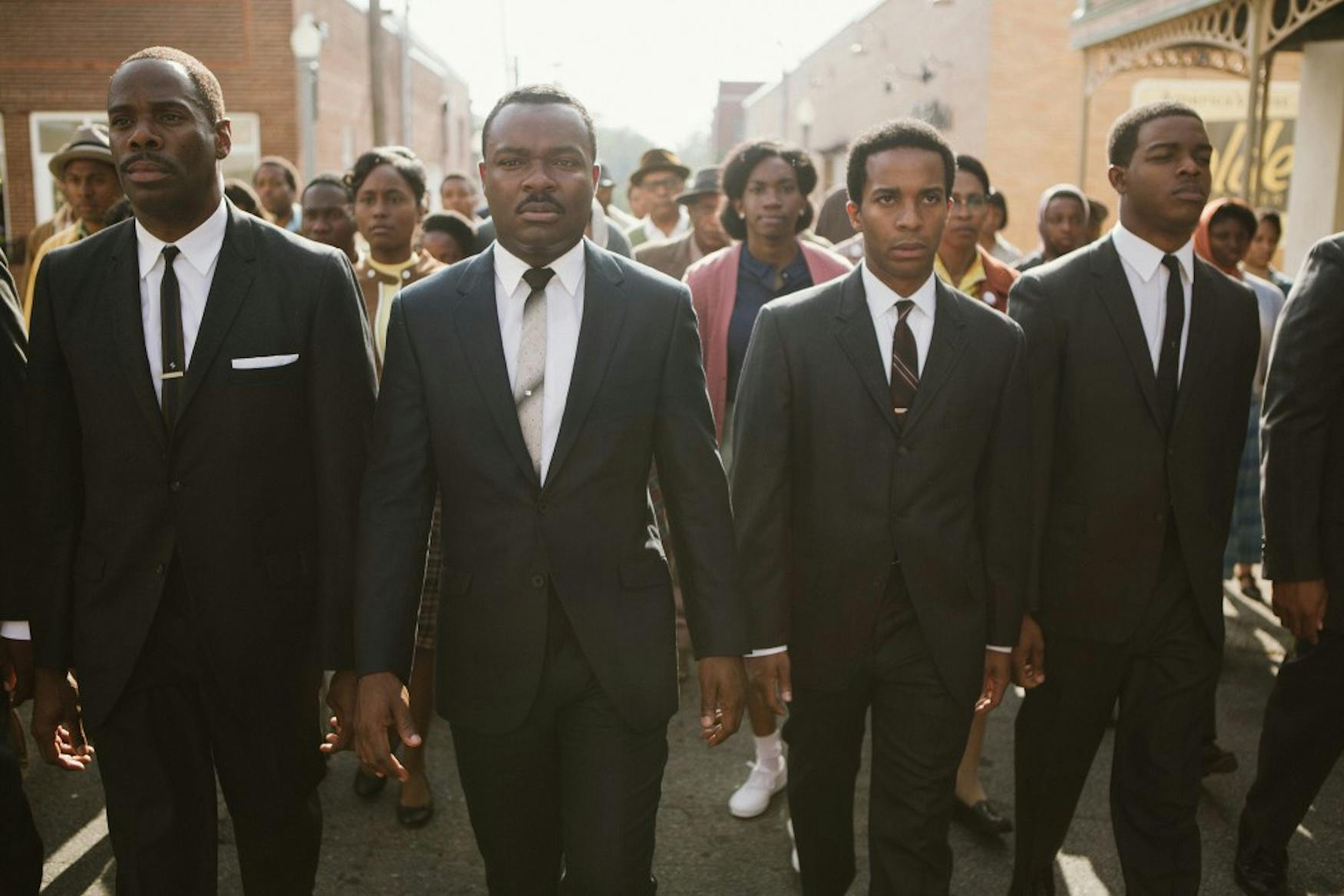‘Selma’ reenacts civil rights history with emotion
With four Golden Globe nominations already under its belt, Selma is shaping up to be one of the most influential and memorable films of 2015. Released on Jan. 9, Selma takes an up-close and emotional look at civil rights leader Rev. Dr. Martin Luther King Jr.’s work with challenging voting rights in Selma, Alabama in 1965. The film, which was directed by Ava DuVernay, culminates in Montgomery voting rights marches led by King and other civil rights leaders.
King, played by David Oyelowo, commands the screen and gives a stellar performance to a man whose memory dominates history. Oyelow’s King is powerful, emotional and, most importantly, real. In Selma, King becomes a relatable figure and not just someone we read about in history books. Oyelowo’s performance has garnered a Golden Globe nomination for Best Actor, and he fully deserves this honor.
The other main activists of the film are James Bevel (Common), Hosea Williams (Wendell Pierce) and John Lewis (Stephan James). Both hip-hop artist Common and Pierce gave surprising performances that I did not expect from a rapper and television actor. As well, female activist Diane Nash (Tessa Thomspon) was a welcome addition to the mostly male-driven cast. The character was portrayed as an equal to her male counterparts, and her contributions to the movement were equally recognized. Although not on the front lines with her husband, Coretta Scott King (Carmen Ejogo) plays an important role in the film as the woman behind one of the most important men in history. The audience feels her heartbreak, anguish and support throughout the movie, which allows a greater understanding of King as a husband and father.
Although appearing in only one scene, Ledisi Young as gospel singer and civil rights activist Mahalia Jackson highly added to the film. Young’s outstanding and powerful voice does justice to the singer’s legacy, both as a performer and strong supporter of King.
Following her performance in The Butler, Oprah Winfrey also appears in Selma as Annie Lee Cooper, a civil rights activist who is portrayed as a victim of the unfair voting laws and Alabama’s oppressive racial dynamics. In one of the most powerful scenes, Winfrey is attacked and slammed to the ground at a peaceful protest outside the Selma courthouse. The close-up shots on her face depict the true struggle of the movement as the police brutally attack a defenseless woman. It is in these moments—of struggle and violence and unfair treatment—that Selma truly hits the hardest. With the use of talented actors, Selma gives life to a dim part of history that still echoes in society today.
Another minor yet notable role is Jimmy Lee Jackson, played by Keith Stanfield, who pays the ultimate price in the civil rights movement. Stanfield’s performance conveys the commitment and sacrifices protestors made in Selma. Viola Liuzzo (Tara Ochs) is another minor character whose contribution adds to the power of the film. Ochs plays a white civil rights activist who is shot by Ku Klux Klan members after participating in the voting rights marches. Her death, as well as the arrival of white supporters from across the country, were expertly portrayed in the film.
Aside from the cast, Selma also excels in its historical acuity and attention to detail. The viewer feels transported back to a time of great tension and change in the country, and every supporting character adds to this feeling. As for details, aspects like the set added to existing themes within the film. For example, as King speaks to President Lyndon B. Johnson (Tom Wilkinson) in the Oval Office, they stand under a portrait of George Washington, which further adds to this sentiment of American values and freedom.
Selma does not have to try very hard to be an emotionally compelling and hard hitting film due to the nature of its subject matter, but its cast selection and the overall directorial choices made by director Ava DuVernay amplify the historical events. Racial tension and equality are still major issues in American society, and Selma is a reminder of the past and a guide for the future.



Please note All comments are eligible for publication in The Justice.